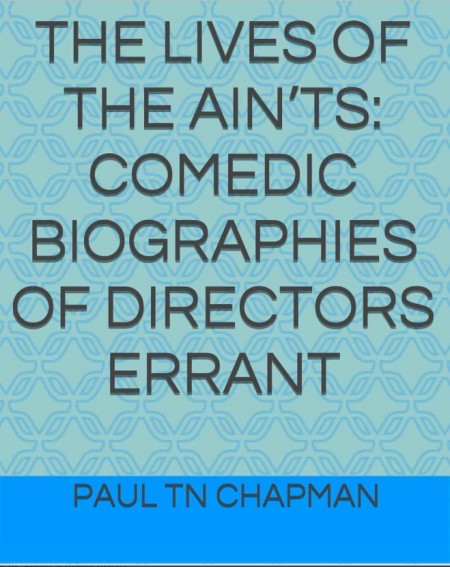In pursuit of actual understanding of my fellow human beings, I spend a lot of time looking at social networking, blogging, and self-promotion websites; after considerable study, I have to say people seem to have lost the ability to speak for themselves.
What I mean by this is the overuse of particular words. We live in the era of ‘totally’. Recently, while getting onto a train, a woman complained to a friend that she’d just been ‘totally hit in the head’, and I expected to see significant damage, possibly with body parts lying about. Perhaps it was the blow to the head (which seemed innocuous to me) that resulted in her burbling ‘totally’ needlessly.
I recall standing on the street when a young woman came around the corner, talking on her mobile telephone. From the moment I first heard her until she went out of earshot, a period of perhaps 10-15 seconds, she used the word ‘like’ twenty-seven times.
The inability of wait-staff to form a complete sentence when bringing your meal is a real tooth-grinder for me. I hate having my plate of salt-baked squid slammed down in front of me with the one-word injunction to ‘enjoy’ blurted in haste. It is, however, common practice in gustatory emporia.
I’ve heard more than one British English speaker complain about British youths’ use of the word ‘brilliant’. ‘How was that book?’ ‘Brilliant!’ ‘How is your sandwich?’ ‘Brilliant!’ I believe in the US, people have their own form of ‘brilliant’, and that’s simply awesome. Literally.
There is a new villain of communication now. While perusing the biographical pages of such websites as About.me and WordPress, I’ve found that everyone is passionate about what they do. In some instances, that would see quite reasonable. The Oxford English Dictionary defines ‘passion’ as a ‘strong and barely controllable emotion’, or an ‘intense desire or enthusiasm for something.’ It seems reasonable to be ‘passionate’ about child welfare and domestic violence, for example, or about your sweetheart. In other instances, ‘passion’ has become the new linguistic ‘black’, following in the footsteps of ‘like’, ‘totally’, and ‘awesome’. Oh, I almost forgot—‘brilliant’ too. It makes people sound fanatical in some instances, and brain-dead in others. The mental image ‘being passionate about’ conjures can be comical, to say the least.
Skipping for the moment the fellow whose listed interests are himself, himself, and himself, and looking elsewhere while someone else says he ‘writes with passion’, we have a photographer who is passionate about light and colour, another person who is passionate about travelling, a gal who is passionate about crafting, and a guy who is passionate about hiking and mountain climbing. I was very impressed with one woman’s page until I read that she was ‘passionate about leadership’. Are all these people really experiencing a barely controllable emotion over light and colour? An intense desire for Leadership? (Watch out for that one!) Really?
According to Oxforddictionaries.com, the word ‘passion’ comes from the Latin pati, meaning ‘to suffer’. Contemporary passions seem to have drifted from their origins considerably, unless of course your passion is to make me suffer. (Were we married once?)
When we fall into these habitual speech patterns, we allow a social trend or fad to speak for us, and we become sheep. The overuse of a word or expression eventually leads to that word having no real meaning. It becomes a reflexive, uncaring response or description which, in time, we learn to ignore. (The origin of ‘goodbye’ was ‘God be With You’, and it was a sincere prayer. Now it’s ‘bye bye,’ offered without meaning or sentiment, if at all.)
There are some things I’m genuinely passionate about; I don’t expect anyone to be interested in the degree in which those subjects, things, or people arouse my interest and affection. I’m satisfied to say I like something, I’m interested in something, I enjoy something. In the parlance of the contemporary speaker, I’m passionate about speaking for myself and not following trends and pattern fads, or being a ventriloquist’s mannequin for them (whoever they are).
English is a beautiful language, and for it to retain its beauty, we must retain its integrity. Let us think for ourselves, and speak our thoughts instead of mindless claptrap. Of course the language will evolve—otherwise we’d still go around singing, ‘Bytuene Mershe ant Averil/When spray biginneth to spring, The lutel fowl hath hyr wil/On hyre lud to synge.’
Which, come to think of it, is almost as sensible as, like, I dunno, something awesome like being, like, totally passionate about potato chips.
————————————————————————–
If you enjoyed reading this, please take a look at my eBooks on Amazon.com:
Behind These Red Doors: Stories a Cathedral Could Tell : http://amzn.to/1iGMFUp
Lives of the Ain’ts: Comedic Biographies of Directors Errant: http://amzn.to/1nPvqoc
The Inn of Souls: http://amzn.to/1lD7xjJ




Thank you very much!